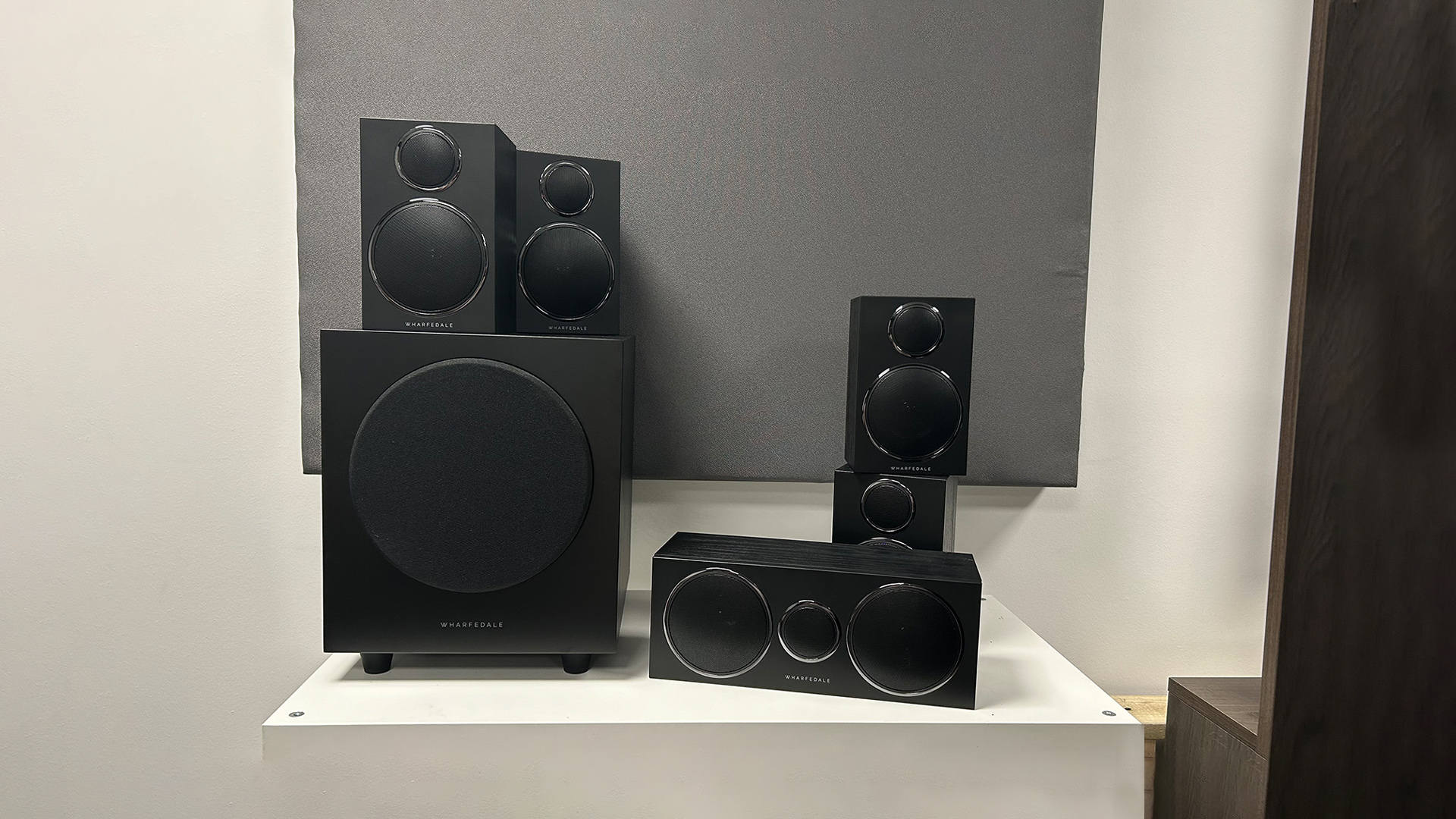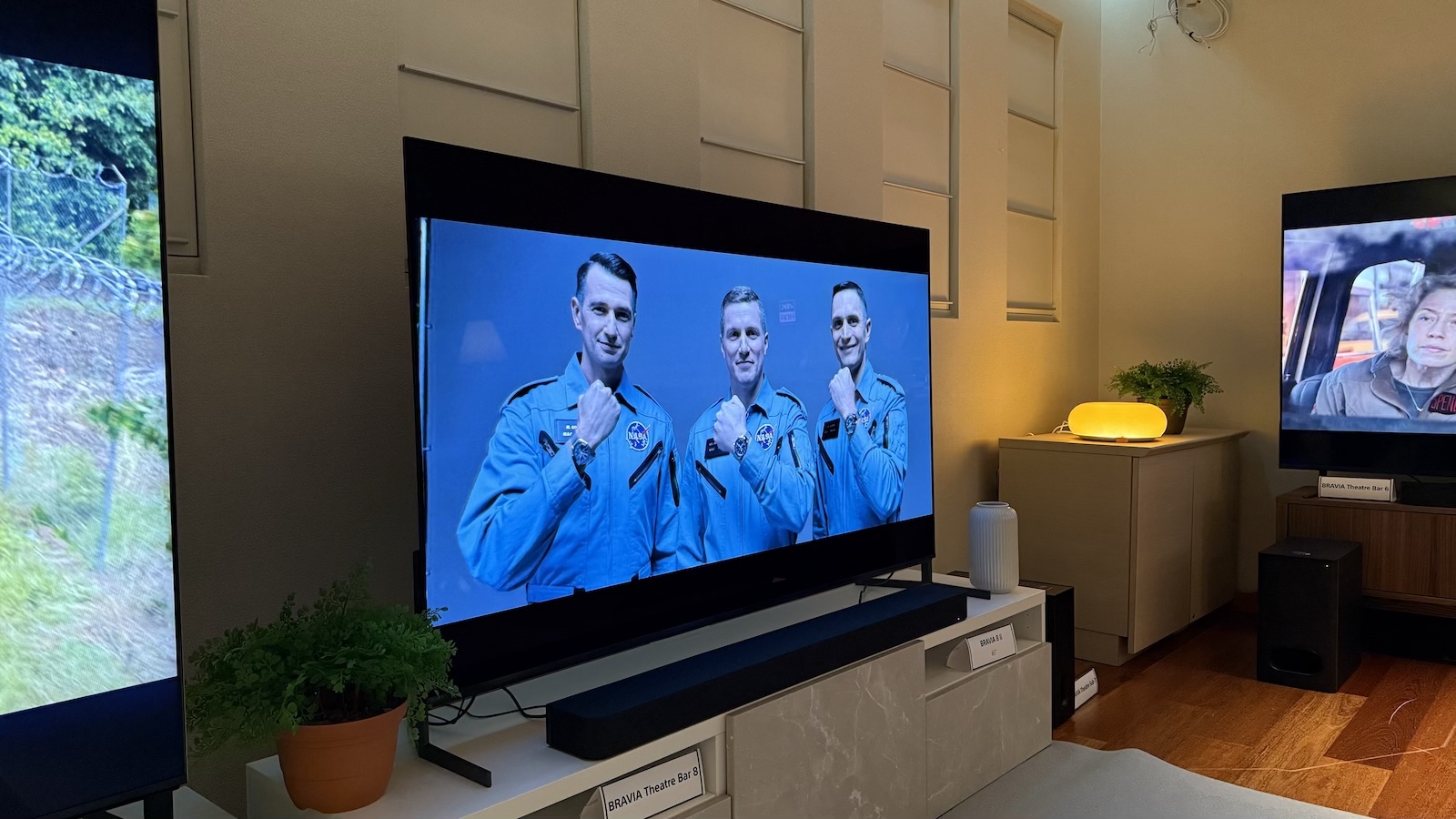What Hi-Fi? Verdict
The DX-3 HCP might quite literally live in the shadows of bigger home cinema speaker packages, but its punchy and broad sound is impressive for the money
Pros
- +
Detailed and crisp sound
- +
Punchy dynamics
- +
Competitively priced
Cons
- -
Lacking some warmth and richness
Why you can trust What Hi-Fi?
We test a lot of big, bulky home cinema speaker packages here, sometimes with floorstanding speaker units that are within touching distance of 4ft. We understand that not everyone has room to accommodate these types of surround sound set-ups, but at the same time, they don’t want to compromise on audio performance.
So you want top-notch surround sound in a compact package? Well, you’re in luck, as Wharfedale has answered your prayers with the DX-3 HCP, a minuscule speaker system that happens to be a sequel to a long-running What Hi-Fi Award winner. So can this new generation of pint-sized speakers live up to the lofty expectations of its predecessor?
Price
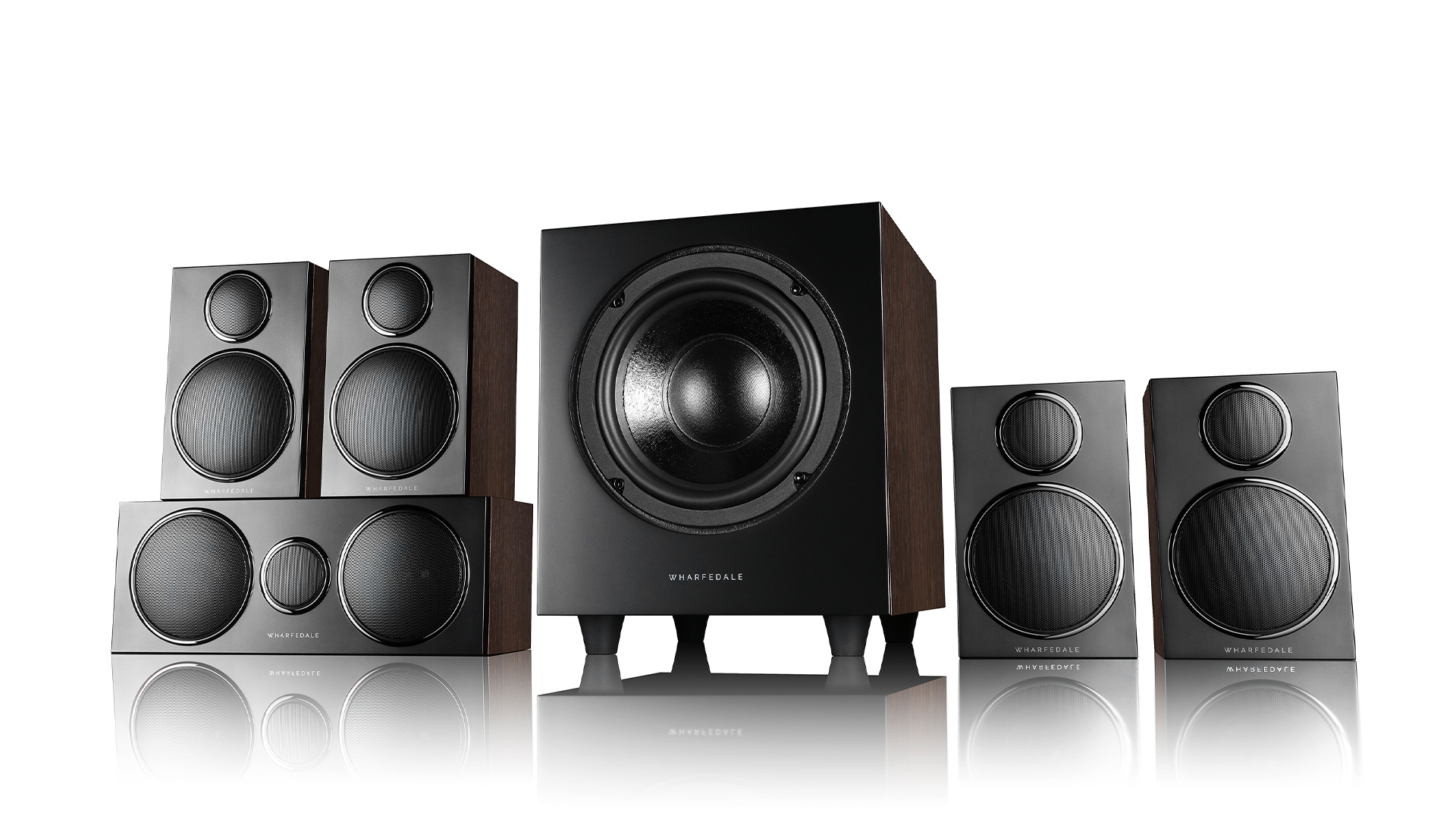
Right off the bat, this Wharfedale package has one disadvantage when compared to its predecessor: at £499 / $749 / AU$999, it's more expensive than the DX-2 package, which launched at £449, although the DX-2 had since dropped to £399 at most retailers.
That being said, no other compact 5.1 speaker system that we’ve tested comes close to this price point, with the recently reviewed Cambridge Audio Minx S325 costing over double the price of the DX-3 at £999 / $1179 / AU$2999.
Wharfedale is also selling the DX-3 speakers that are used as the surrounds in this system as pairs for £149 / $199 / AU$299, should you wish to expand a DX-3 package beyond 5.1 or put together a bijou stereo system.
Build & Features
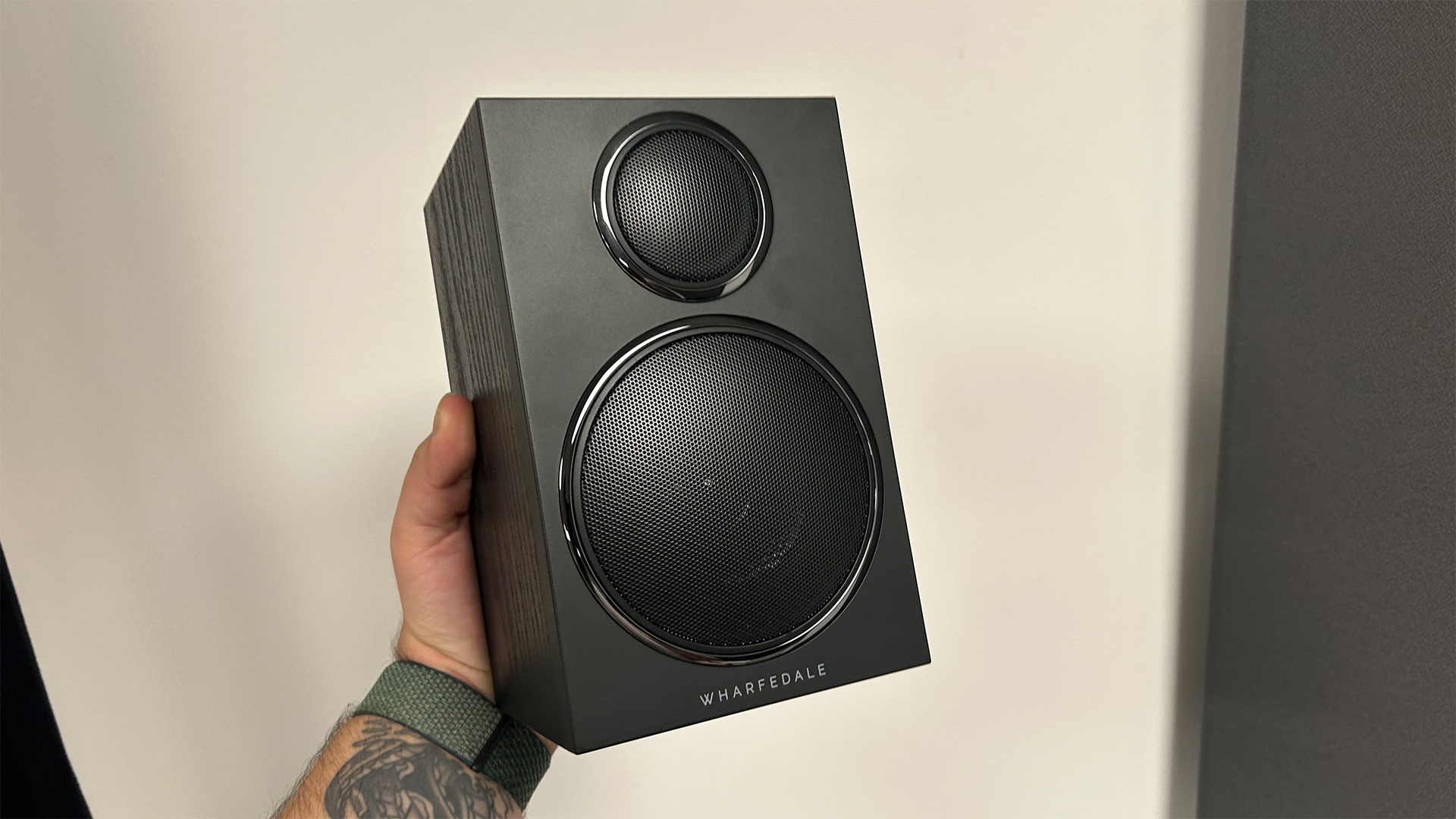
The DX-3 package is all about compact convenience, so it’s no surprise to find out that the cabinets for the surround speakers are indeed small and simple. Measuring just 19 x 12 x 12cm (hwd), each surround speaker has a simple terminal connection on the rear and two circular grilles on the front.
These speakers use a compact two-way closed box design, meaning that they can be positioned close to a wall and are in fact ideal for wall-mounting. Each unit features a 19mm silk dome tweeter and a 75mm woven polypropylene cone mid/bass driver with a claimed frequency response of 100Hz - 22kHz.

Finishes x 2 (black, walnut)
Bi-wired? No
Fronts and surrounds
Dimensions (hwd) 19 x 12 x 12cm
Weight 2kg
Centre
Dimensions (hwd) 12 x 31 x 12cm
Weight 2.7kg
Sub
Dimensions (hwd) 30 x 27 x 30cm
Amplification 70W
Weight 7.8kg
Moving onto the centre channel, it’s minuscule by average centre-channel standards. At just 12 x 31 x 12cm (hwd), it sits comfortably under a TV or it can be wall-mounted. Inside you’ll find the same 19mm tweeter and two of the 75mm mid/bass drivers in an irregular loading set-up.
Rounding things off with the subwoofer, it features a 200mm woven polypropylene cone and 70W of powered amplification. You’ll find a stereo line-in via two RCA connectors, as well as an LFE line-in on the rear of the subwoofer. Much like the rest of the system, it is a shrunken down subwoofer compared to peers within its field, measuring just 30 x 27 x 30cm (hwd).
While we’re certainly a fan of the compact size, we’re unfortunately not enamoured with the new styling that Wharfedale has gone for. Gone is the glossy black and faux-leather finish of its predecessor; the DX-3 package now comes in a cheaper-looking and feeling black wood veneer. While it has benefits, eliminating pesky fingerprints and being easier to keep clean overall, the new package does look a bit uninspired and doesn’t feel as premium.
Sound
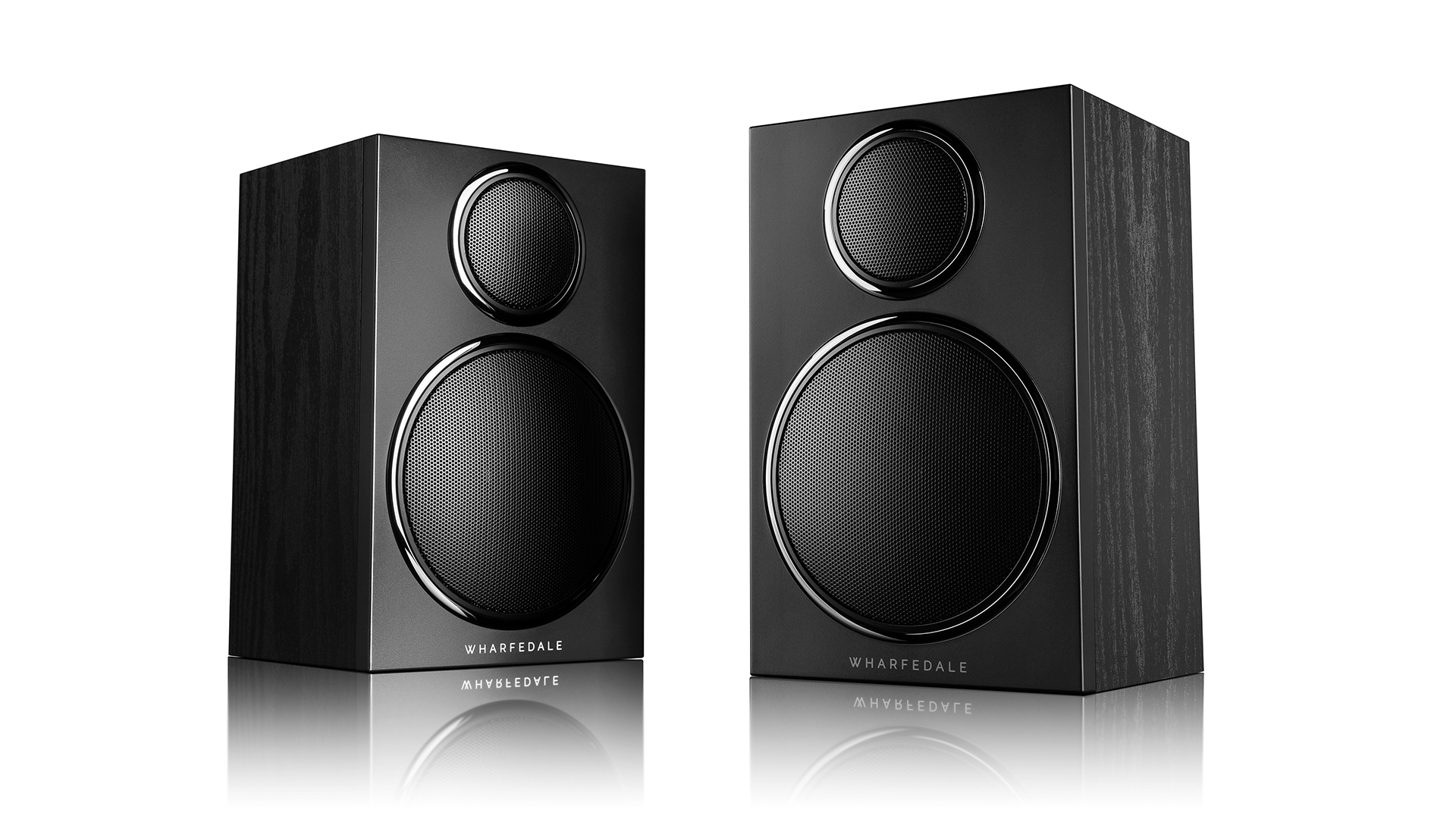
Thankfully, the DX-3 HCP is a prime example of not judging a book by its cover, as the higher price tag and design downgrade allow for sonic superiority over its predecessor. While it’s characteristically similar to the DX-2, Wharfedale has clearly tweaked the sound in order to prioritise scale and dynamics, and while it has lost a little bit of warmth, we appreciate how cinematic it sounds overall. We’ve paired the DX-3 HCP with the five-star Sony TA-AN1000 for testing, which tends to lean towards punchy dynamics and crisp detail, so keep that in mind.
Starting with The Batman we head straight to the Batmobile chase sequence, our go-to test scene for dynamism and scale. Immediately we recognise the stellar clarity of this speaker system, with everything from the twinkling of shattering glass to the Batmobile’s growling engine and even the dialogue that competes with these domineering effects all being presented clearly and with plenty of definition. This extends to the end of the chase, in which despite the booming score and creaking of the upturned car wreck, you can still clearly hear Batman’s imposing footsteps as he walks through the rain and towards the wreckage.
Dynamics are strong on the DX-3 during this sequence. A key moment is when the thunderous score begins, which requires an immediate and punchy show of agility in order to do the brass section justice. Thankfully, the DX-3 does just that. In fact, punchy is the exact way we’d describe it, as, despite its modest size, the system can deliver properly weighty sound with precision and immediacy. This is in part due to the excellent subwoofer, which provides plenty of low-end while remaining controlled.
Moving onto Unbroken, here we can appreciate the DX-3’s capability when it comes to the spaciousness and directionality of the sound. Obviously, there are no upward-firing channels here, but that doesn’t stop us from appreciating how well this system deals with organically moving sound around us. During the exterior shots of the bomber during the opening scene of the film, we get a good sense of where the engine sound should be amidst the rushing wind.
Once it transitions to the interior shots, we find all of the sound effects to be detailed and placed accordingly, without sounding cluttered or claustrophobic. At times it does sound a touch unfocused, but considering how much broader it sounds compared to its predecessor, it's a trade-off we’re happy to make.
Finishing off with Dune, we have the Ornithopter ride scene that concludes with the giant worm attack. This scene affirms most of our sonic suspicions, including the broader scale of sound and punchier dynamics, as well as overall clear, crisp and more detailed sound over its predecessor. We also find the DX-3 to be more energetic, as tension builds nicely during the frantic scramble to rescue the crew of the Crawler before the worm attacks. The fast-paced booming soundtrack and overall momentum of the scene are captured nicely on the DX-3 package, making for an engaging cinematic experience overall.
That being said, the beginning of this scene does highlight one flaw in this package; something that seems to have been lost from the DX-2. This model loses some warmth and richness to the sound overall – vocals tend to sound a bit flatter and less emotive. We think this trait can be balanced out by careful system matching with a more full-bodied sounding AV amplifier such as Denon's AVC-X3800H.
Verdict
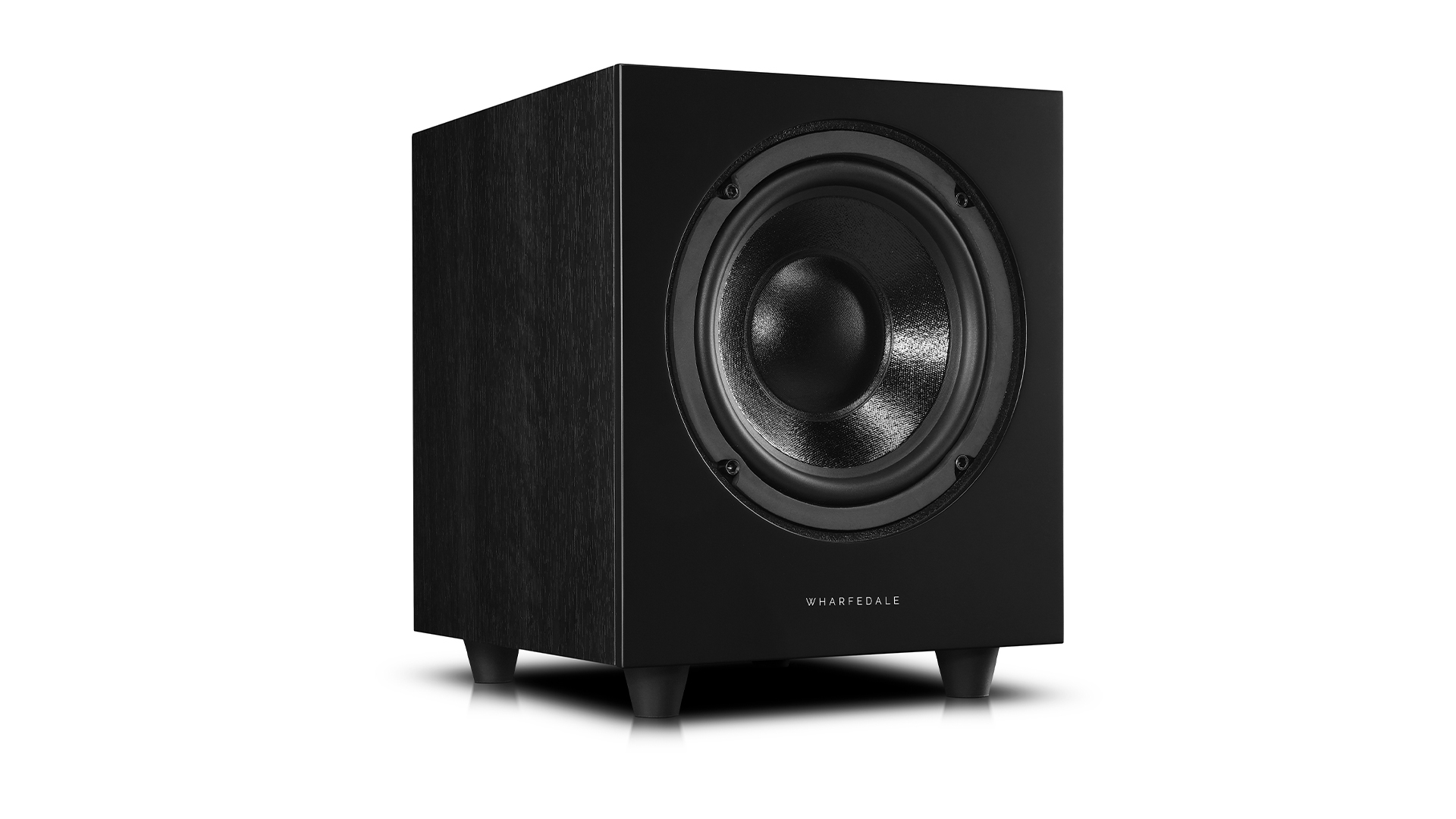
It is hard not to admire the DX-3 HCP, as it delivers sound above and beyond what most soundbars are capable of while being half the price of most models that we recommend. Its unassuming, compact footprint may give the impression that it will deliver a small sound to match, but this is far from the case. The DX-3 not only sounds bigger than its predecessor, but it holds its own in the wider home cinema speaker package market.
Review published: October 2023. Review updated: November 2024.
SCORES
- Sound 5
- Build 4
- Compatibility 5
MORE:
Read our review of the Cambridge Audio Minx S325
Also consider the Wharfedale DX-2
Best home theatre speaker systems: budget to premium home cinema set-ups
What Hi-Fi?, founded in 1976, is the world's leading independent guide to buying and owning hi-fi and home entertainment products. Our comprehensive tests help you buy the very best for your money, with our advice sections giving you step-by-step information on how to get even more from your music and movies. Everything is tested by our dedicated team of in-house reviewers in our custom-built test rooms in London, Reading and Bath. Our coveted five-star rating and Awards are recognised all over the world as the ultimate seal of approval, so you can buy with absolute confidence.
